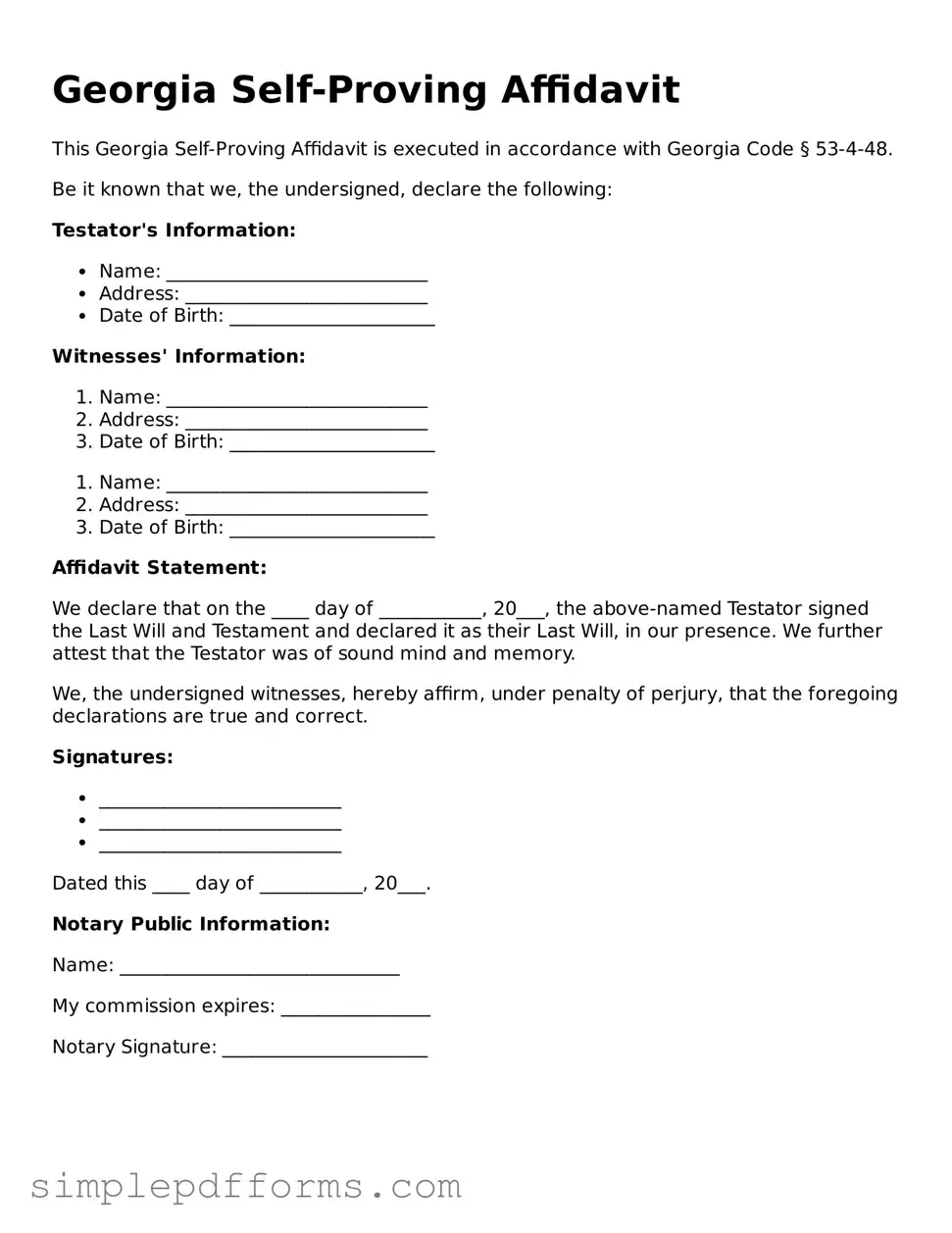Attorney-Verified Self-Proving Affidavit Document for Georgia State
The Georgia Self-Proving Affidavit is a legal document that allows a will to be validated without the need for witnesses to testify in court. This form simplifies the probate process by providing a sworn statement from the testator and witnesses, affirming the will's authenticity. Utilizing this affidavit can streamline the administration of an estate, ensuring that the wishes of the deceased are honored efficiently.
Open Self-Proving Affidavit Editor Now

Attorney-Verified Self-Proving Affidavit Document for Georgia State
Open Self-Proving Affidavit Editor Now

Open Self-Proving Affidavit Editor Now
or
Get Self-Proving Affidavit PDF Form
Your form is waiting for completion
Complete Self-Proving Affidavit online in minutes with ease.